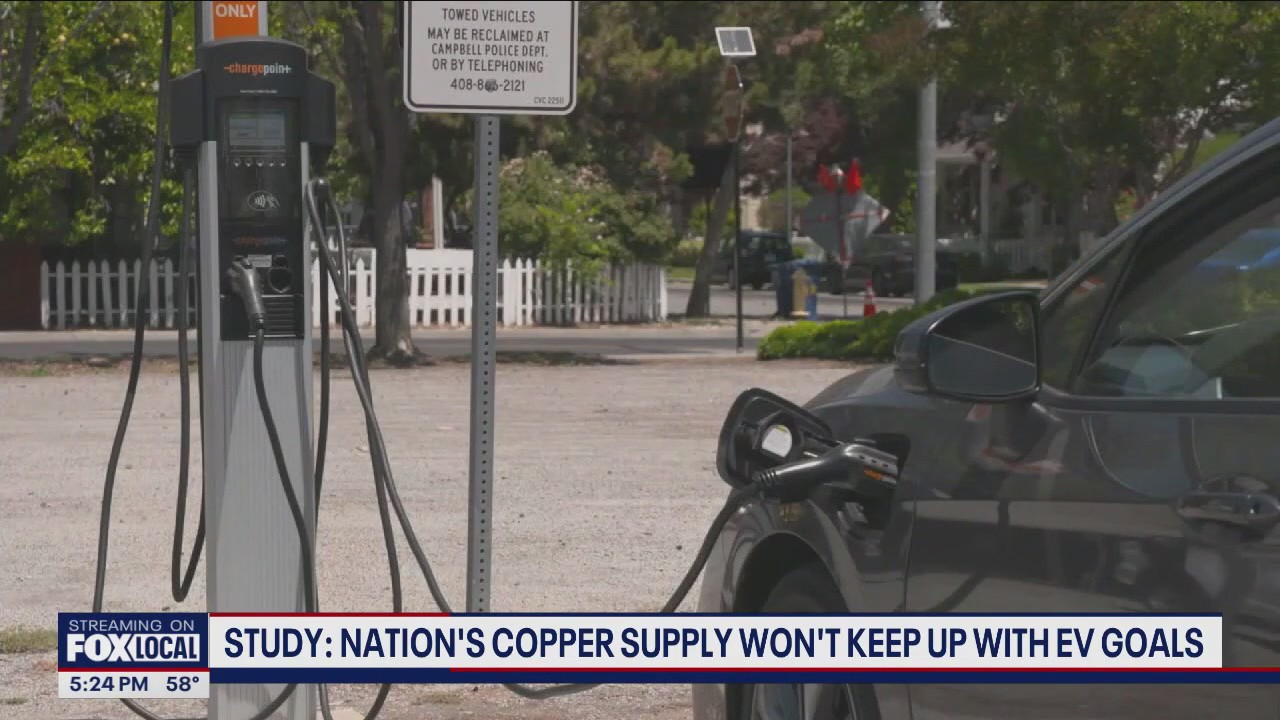Report: U.S. copper supply won't keep up with EV goals

Report: U.S. copper supply won't keep up with EV goals
Big goals by the Federal Government to have more electric vehicles on the road could hit a theoretical pothole, as energy experts say the nation's copper supply can’t keep up.
Big goals by the Federal Government to have more electric vehicles on the road could hit a theoretical pothole, as energy experts say the nation's copper supply can’t keep up.
"I think people have this vision that there’s enough resources to build out a fleet of battery electric vehicles, it sounds great but it’s not resource possible," explained Adam Simon, a University of Michigan earth and environment sciences professor, and one of the authors of a new report on the nation’s copper supply by the International Energy Forum.
In February 2023, the Biden administration set a goal for electric vehicles to make up half of all new car sales by 2030, and to build a network of 500,000 electric vehicle chargers across America on the path to net-zero emissions by 2050.
In February 2024, Washington state laid out a state plan for all "light-duty" vehicles sold, purchased, or registered in the state to be EV’s by model year 2030.
From manufacturing their batteries to building their charging stations — without copper, you don’t have EV’s, according to Simon.
The average gas powered car needs around 50 pounds of copper, meanwhile the average electric car needs around 130 pounds.
"If we were to transition the entire global fleet of vehicles, which is about 100 million new vehicles per year, we need somewhere on the order of 45 to 50 million tons of copper per year by 2050," said Simon.
Simon said to meet that goal, we’d be mining copper at a pace we’ve never seen before, 115-percent more. But to even get to that point, we’d need more copper mines themselves.
"Existing mines can't double production, it's physically impossible," said Simon. "When they build that mine, and they build it to last 50 years, they build it to produce a specific amount of copper every year for 50 years."
Simon says right now the U.S. only produces about 60-percent of the copper we use here in the states. The other 40-percent is imported. We also don’t know how to manufacture a substitute compound to replace copper, so we’re limited.
Electric vehicles don’t come without environmental costs of their own. Copper mines bring with them air pollution and water contamination.
The report goes on to say hybrid electric vehicles could have almost as large of an impact on reducing CO2 emissions and city pollution as EV’s, but don’t require as much copper to build.
MORE FOX 13 SEATTLE NEWS:
Families of plane crash victims urge DOJ to prosecute Boeing
WA DNR predicting a tough fire season: How to minimize the fire danger surrounding your home
Washington educator wins $200,000 jackpot after Teacher Appreciation Week
Sue Rahr discusses first days as SPD interim police chief
To get the best local news, weather and sports in Seattle for free, sign up for the daily FOX 13 Seattle newsletter.


